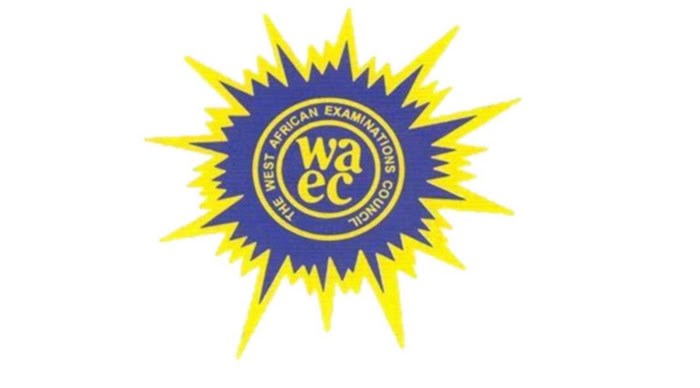
WAEC Vows Full Switch to CBT for WASSCE by 2026
- Education
- 03.09.2025
- No Comment
- 232
WAEC Vows Full Switch to CBT for WASSCE by 2026
ambitious plan to migrate the West African Senior School Certificate Examination (WASSCE)
from the traditional paper-and-pencil model to a fully Computer-Based Testing (CBT) system by 2026.
 Speaking during a sensitisation meeting with members of the National Assembly Committee on Education in Abuja,
Speaking during a sensitisation meeting with members of the National Assembly Committee on Education in Abuja,Dr. Amos Dangut, WAEC’s Head of National Office, emphasized that the transition is on track,
with significant milestones already achieved since the initial implementation for private candidates in 2024.
more secure, efficient, and transparent assessment systems in Nigeria and across West Africa.
In January 2024, WAEC conducted its first CBT-based Senior School Certificate Examination (SSCE)
for private candidates, marking the beginning of a new era in the region’s education sector.Encouraged by the success of the pilot phase, WAEC has now resolved to expand the initiative
to include school candidates from 2026, thereby making all WASSCE exams fully computer-based.
including both private and school-based tests. The outcomes, he noted, have been overwhelmingly positive,
with candidates recording “empirically better” performances compared to paper-based testing.
and hard-to-reach areas without any disruptions, proving that geographical challenges will not hinder the migration.
supporting WAEC in achieving a nationwide transition to CBT. The Minister of Education, Dr. Tunji Alausa,
disclosed that both privately-owned CBT centres and facilities belonging to public institutions would be deployed
for the conduct of the school-based SSCE starting from 2026.He explained that the model will be similar to the Joint Admissions and Matriculation Board (JAMB),
where exams are hosted in dedicated CBT centres across the country rather than within schools.
This, he argued, ensures fairness, enhances monitoring, and reduces malpractice.

Some of the most notable advantages include:
- Faster Results Processing: CBT eliminates delays associated with manual marking, allowing candidates to receive results quicker.
- Reduced Malpractice: The digital format minimizes examination malpractice, one of the biggest challenges WAEC has faced over the years.
- Enhanced Security: CBT significantly reduces the risks of exam paper leaks and other integrity issues.
- Improved Student Performance: WAEC’s early trials suggest candidates perform better with CBT due to its interactive and user-friendly nature.
- Global Alignment: Transitioning to CBT aligns West African education with international standards in testing and evaluation.
Concerns include:
- Infrastructure: Many rural areas in Nigeria lack stable electricity and internet connectivity, which are essential for CBT exams.
- Capacity of Centres: The existing number of CBT centres may not be sufficient to accommodate millions of candidates at once.
- Training: Teachers, supervisors, and students require adequate training to adapt to the new system.
- Cybersecurity: Protecting exam servers and systems from hackers and digital threats is a top priority.
- Funding: Expanding CBT infrastructure nationwide requires significant financial investment.
However, both WAEC and the Federal Government have pledged to address these challenges
through partnerships with private investors, technology providers, and local communities.
While many students and parents welcome the innovation, some school administrators have expressed concerns
about the capacity of their students, particularly in rural areas, to cope with a fully digital exam system.Lawmakers at the sensitisation meeting assured WAEC of their support but urged the council
to ensure a gradual and inclusive transition that does not leave any group behind.
The Joint Admissions and Matriculation Board (JAMB) has successfully run
computer-based exams for years, setting a strong precedent.Likewise, the National Examinations Council (NECO) is also expected
to follow suit in adopting CBT fully in the coming years.
This trend underscores Nigeria’s commitment to modernizing its education system.

rethinking how they study and practice for exams.
Instead of focusing solely on writing with pen and paper, students will need to familiarize themselves
with computers, digital test-taking techniques, and time management in an electronic environment.Schools and parents are expected to play a major role in ensuring students are adequately prepared
by providing access to practice CBT software, internet facilities, and ICT training.
represents a historic shift in the West African education landscape.
It reflects WAEC’s determination to modernize examinations,
reduce malpractice, and enhance learning outcomes for millions of students.While challenges remain, the opportunities far outweigh the obstacles.
With proper planning, investments, and stakeholder collaboration,
Nigeria is on course to set a new standard in examination delivery across the continent.
How Can I Check WAEC Result?
To check your WAEC result, you need your Examination Number,
Examination Year, Type of Exam, and the WAEC Result Checker PIN
usually found on a scratch card or e-PIN.
Simply visit the official WAEC result portal,
input the required details, and click on “Submit.” Your results will be displayed immediately.
What Score is B3 in WAEC?
WAEC uses a 9-grade system, with A1 as the highest and F9 as the lowest.
A B3 grade means you scored between 65% and 69%.
It is considered a very good grade and is widely accepted by universities and employers.
Is it True that 2025 WAEC Will Be CBT?
Yes. WAEC has confirmed that it is gradually moving all exams to Computer-Based Testing (CBT).
Starting from 2024, private candidates began using CBT. By 2026, all candidates (including school candidates)
will take the exam through CBT. Therefore, 2025 is expected to be a transitional year, with more CBT exams conducted.
How to Check WAEC Result 2025 Using Phone?
You can check your WAEC result directly on your phone in two ways:
- Via SMS: Send an SMS in this format:
WAEC*ExamNo*PIN*ExamYearto 32327. For example:WAEC*4250101001*123456789012*2025. You will receive your result as a text message. - Via Online Portal: Open your phone browser, visit WAEC Direct, enter your exam details and PIN, then click “Submit.”
WAEC Result Checker
The WAEC Result Checker is an online platform that allows candidates to access their results.
You will need a result checker PIN, which can be purchased at WAEC offices, banks, accredited dealers, or online.
Each PIN allows you to check your result up to five times.
West African Examination Council Abbreviation
The West African Examinations Council is commonly abbreviated as WAEC.
It is an internationally recognized examination body responsible for conducting standardized exams
in Nigeria, Ghana, Sierra Leone, Liberia, and The Gambia.
West African Examination Council Founded
WAEC was officially founded in 1952. Since its inception, the council has provided reliable
and standardized examinations for millions of students across West Africa, ensuring credibility and transparency in education assessment.
How to Check My Results Online?
To check your results online:
- Visit www.waecdirect.org
- Enter your Exam Number, Exam Year, Type of Exam, and Result Checker PIN
- Click “Submit”
- Your results will appear, and you can print them for future use.
This method is fast, reliable, and works on both mobile and desktop devices.




